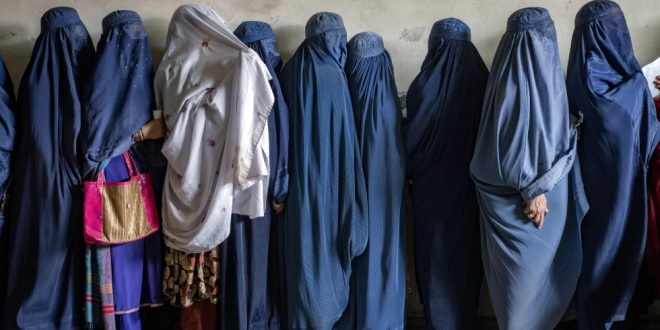Afghan women’s mental health drastically declines amid Taliban rule

KABUL – The mental health of Afghan women, who have been grappling with the harsh measures imposed by the Taliban since they assumed power two years ago, has shown a disturbing decline across the nation, according to a comprehensive report jointly published by three United Nations agencies on Tuesday.
The report, a collaborative effort of U.N. Women, the International Organization for Migration, and the United Nations Assistance Mission in Afghanistan, highlights a concerning trend. Between April and June, an alarming 70% of Afghan women reported a significant worsening of feelings of anxiety, isolation, and depression. This marks a notable increase from the 57% reported during the previous quarter.
To compile this data, Afghan women were interviewed through various methods, including online, in-person, group consultations, and individual telesurveys. A total of 592 Afghan women from 22 out of the country’s 34 provinces participated in the study.
The women’s testimonies shed light on the psychological challenges they are facing, including depression, insomnia, dwindling hope and motivation, heightened anxiety, fear, increased aggression, social isolation, and even thoughts of suicide.
The Taliban, who assumed control in 2021 as U.S. and NATO forces withdrew from Afghanistan after two decades of conflict, had initially promised a more moderate rule compared to their previous regime in the 1990s. However, they have instead implemented stringent measures, with many directly impacting women.
These measures include barring women from participating in most aspects of public life and work, as well as prohibiting girls from pursuing education beyond the sixth grade. Afghan women have also been denied opportunities to work at local and non-governmental organizations, and this ban was further extended to include employees of the United Nations in April.
The limited educational opportunities for Afghan women have continued to dwindle, as community-based education initiatives by international organizations were banned, and home-based schooling efforts were frequently disrupted by the de facto authorities, a term used by the U.N. to refer to the Taliban government.
Notably, Afghanistan remains the only country in the world with such restrictions on female education, and the rights of Afghan women and children are now a prominent topic on the agenda of the United Nations General Assembly in New York.
culled from Afghanistan Times

